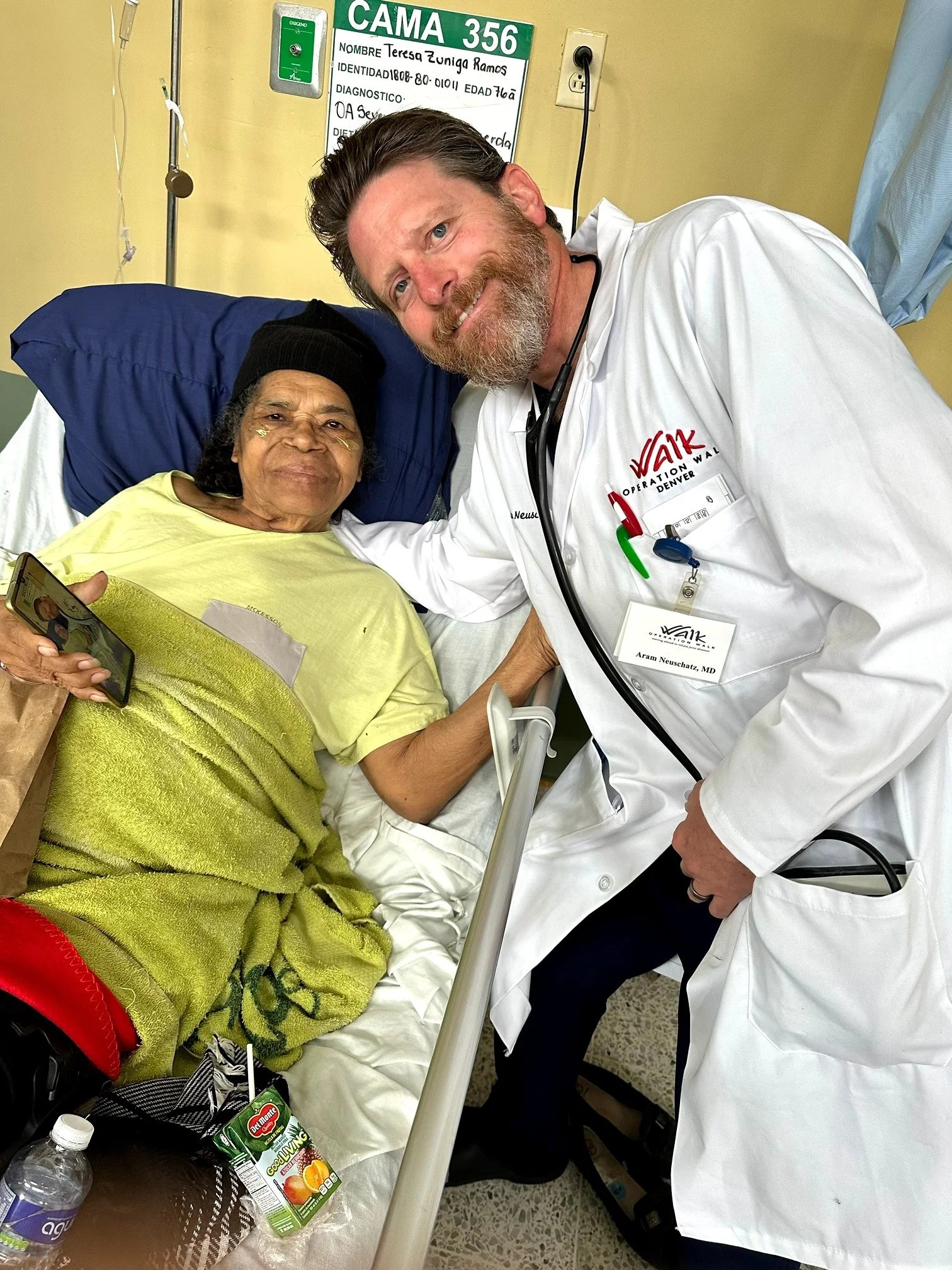Physician rolls up sleeves, reconnects with his ‘why’ through medical charity
By Patricia Billinger, Internal Communications Director, Intermountain Health Peaks Region
Long hours. Minimal resources. Providing medical care for some of the direst cases, under some of the toughest conditions. All without pay.
That’s how Aram Neuschatz, MD, Hospitalist, spends his time off once or twice a year. And contrary to what you might expect, he describes the experience as “energizing.”
For more than a decade, Neuschatz has volunteered on medical charity trips with Operation Walk, an organization that provides orthopedic surgery in developing countries. His medical volunteerism has taken him to Panama, Honduras, Mexico.
Neuschatz grew up in Boulder, Colo. After leaving the state for med school and residency, he returned to home in 2003 to work for private practices and serve as an internist at Lutheran. In 2014 some of his former practice partners encouraged him to join them and volunteer with Operation Walk.
Neuschatz isn’t an orthopedic surgeon, so he contributes in myriad ways.
“You have to be very non-hierarchical and be willing to roll up your sleeves and do whatever is needed,” he said. “So when I’m down there, my main responsibilities are to provide pre-operative screening and post-operative care and deal with urgent problems that come up. But I’ll also go get lunch and wheel patients around – things that wouldn’t be thought of as your job as a doctor here. But we all pitch in together.”
Although the trips involve hard work and long hours – often 15 hours a day for a week straight – Neuschatz says he comes home more energized.
“You make good friends. You feel like you’ve accomplished something good together. Everybody works together to accomplish the same thing. And I think that’s the true spirit of healthcare,” he said.
His favorite experience is seeing the positive outcomes for patients. As an internist at Lutheran, he treats patients when they’re sick and doesn’t often see them after they’re discharged.
“The best ones are when we do a surgery on someone, and then we come back the next year and I get to see how they’ve recovered and what their life is now,” he said. “A lot of times it’s been a revelation, from them lying in bed in pain most of the time to now they’re working, dancing, doing the things they love, productive. That’s super, super rewarding.”
After 22 years in medicine, Neuschatz says he still loves what he does, but the regular charity trips help him reconnect with his purpose and the essence of medicine.
He believes physician burnout in the US stems from the sometimes necessary but burdensome transactional, administrative and regulatory work that isn’t direct patient care. Those elements aren’t as prevalent in charity care in underdeveloped countries, where direct patient care is front and center.
At the same time, practicing medicine in settings that lack many basic resources helps American doctors appreciate what they can take for granted. And working without those resources helps them approach care more creatively, collaboratively and with a focus on the patient.
“You're working with some phenomenal clinicians from these other countries who have been practicing for a long time and have less technology and testing at their fingertips. So they become very astute. It’s inspiring for us,” he said. Without a wealth of diagnostic tools and treatment resources, “You spend more time listening to people, communicating with them, empathizing with them, trying to make them laugh, giving a physical examination that's proper, and then talking with them.”
Medical charity work forces volunteers to simplify and focus on what matters most.
“To me, the best part about it is that it’s sort of like all the pure parts of medicine, why you went into becoming a doctor,” he said. “This really reconnects you with your ‘why,’ reconnects you with why you went into medicine.”
If you’ve participated on a medical mission that inspired you, please click here. We’ll share your story so it can inspire others.

